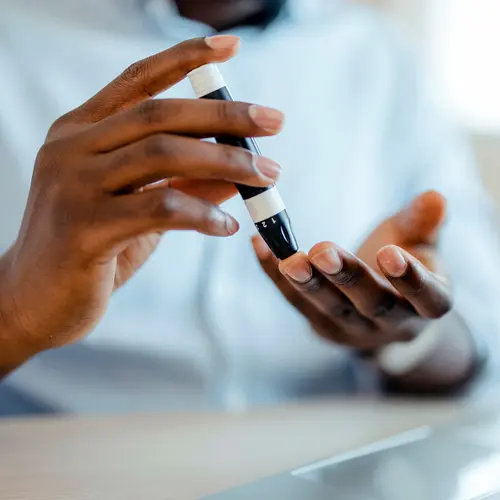When you have diabetes, your chance of heart disease goes up, so you may need tests that check how well your ticker is working. They'll help your doctor see if you have signs of heart trouble and figure out the best treatment for you.
Blood pressure check. It's a painless test that uses a special meter to measure the force of blood pushing against your vessel walls. If you don't get your high blood pressure under control, you could get health problems like:
- Stroke
- Heart attack
- Heart failure
- Kidney failure
Carotid ultrasound. It uses high-frequency sound waves to give your doctor a view of your major neck arteries, called the carotids. They'll be able to see if you have any narrowing of your arteries that's caused by a buildup of fatty deposits called plaque.
Computerized tomography (CT) of the heart and calcium scores. This imaging test can spot calcium deposits in vessels on your heart. More calcium means more coronary atherosclerosis -- a hardening and narrowing of your arteries. Your doctor uses the test results to figure out your odds of having heart trouble.
Electrocardiogram (EKG). It's a test that measures the electrical activity of your heart. Your doctor will be able to check for things like:
- Heart rhythms that aren't normal
- A larger-than-usual heart chamber
- Poor blood flow
- Heart attack
Ambulatory electrocardiogram (Holter monitor). This test measures the electrical activity of your heart while you go about your regular daily activities.
Echocardiograph (echo). It uses ultrasound to give your doctor a graphic outline of your heart chambers and their movement. They'll be able to check your heart's structure and motion, and see how thick the heart muscle is and how well the heart pumps.
Exercise stress test. It's a treadmill test that helps your doctor find out how much blood flow gets to your heart muscle when it works hard, like while you exercise. You'll learn if you have less blood flow in the arteries that send blood to your heart muscle. Your doctor can use this info to figure out what a safe level of exercise is for you.
Coronary angiography. This procedure, also known as cardiac catheterization, can help your doctor check how many artery blockages you have and how severe they are.

